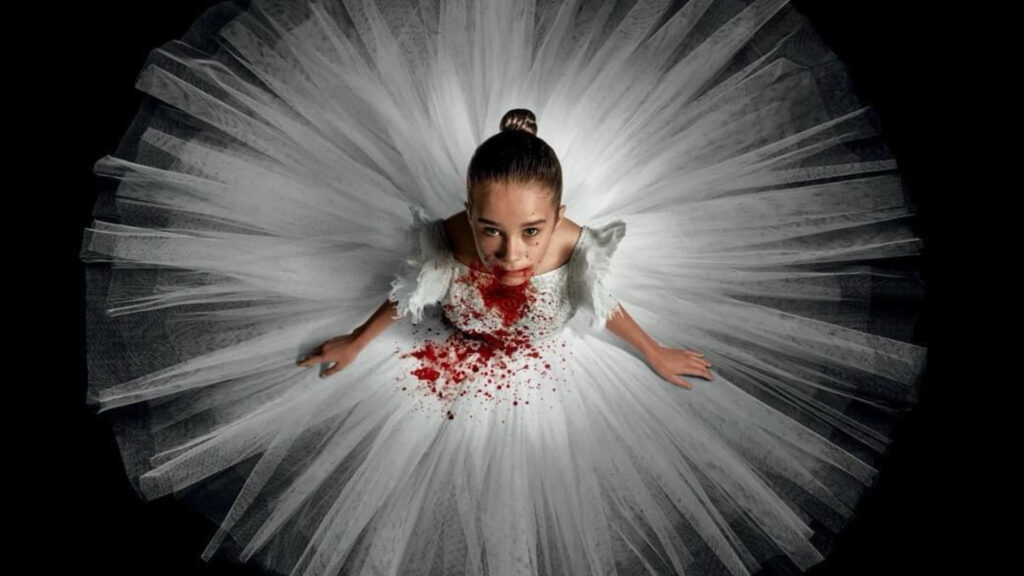Abigail Christian Review

Abigail—a movie that sets itself up as a horror-thriller with a supernatural bent, centers around a bunch of criminals who kidnap a 12-year-old ballerina. Sounds pretty straightforward, right? Hold your horses. The story takes a sharp left turn into the kind of spooky territory that keeps you up at night. But let’s break this down from a Christian perspective, where faith meets fear, and morality isn’t just a subplot.
Initial Impressions
When you first hear about Abigail, you might think it’s another run-of-the-mill thriller. Kidnap a girl, hide out in a mansion, demand a ransom. Easy peasy, right? But the movie quickly dispels that notion. The mansion, isolated and eerie, isn’t just a hideout—it’s a trap. The kidnappers, expecting an easy payday, soon find themselves in a nightmare, as the mansion reveals its secrets, and they start dropping like flies.
From a Christian point of view, this setup is rife with potential. It hints at themes of justice and retribution. The bad guys get their comeuppance. Simple. But is it that simple?
Themes and Morality
Let’s talk themes. The movie delves deep into sin, justice, and the consequences of our actions. Here, the kidnappers are the epitome of moral decay. They’re criminals, not just breaking the law but violating fundamental human decency. And in classic horror fashion, their sins come back to haunt them—literally.
Romans 6:23 pops into mind: “For the wages of sin is death.” The movie hammers this home, but with a supernatural twist. The kidnappers’ fate is sealed not by human hands but by some malevolent force lurking in the mansion. It’s like watching a sermon on the consequences of evil, but with a lot more blood and screaming.
However, this isn’t a neat, tidy lesson wrapped in biblical principles. The supernatural elements muddy the waters. We’re not just talking ghosts; there are hints of demonic influences. For Christians, this raises red flags. Deuteronomy 18:10-12 warns against engaging with such forces. The Bible is clear—dabbling in the occult is a no-go.
So, while the movie effectively shows that evil deeds lead to ruin, it also risks glorifying the very darkness it condemns. It’s a tightrope walk between delivering a moral message and sensationalizing the supernatural.
Violence and Content
Let’s get into the nitty-gritty—the violence and the horror. Abigail doesn’t shy away from showing the grisly fate of its characters. The kidnappers meet their end in various gruesome ways, each more terrifying than the last. It’s a gore-fest, designed to shock and disturb.
For Christians, this is a double-edged sword. On one hand, it vividly illustrates the consequences of sin. On the other, it can be deeply unsettling. Philippians 4:8 urges believers to focus on whatever is true, noble, right, pure, lovely, and admirable. Watching people get picked off by a malevolent force in graphic detail doesn’t exactly fit the bill.
The supernatural horror element adds another layer of concern. These scenes aren’t just scary—they’re meant to instill fear. And not the fear of God, but a primal, unsettling fear of the unknown and the unseen. This kind of fear can be corrosive, eroding faith and replacing it with anxiety and dread.
Missing Redemption and Hope
One of the most glaring omissions in Abigail is the lack of redemption. Horror thrives on despair and hopelessness, but Christianity is fundamentally about hope. No matter how dire the situation, there’s always a path to redemption through faith and repentance.
In Abigail, this redemptive arc is conspicuously absent. The characters are trapped in a downward spiral, with no hint of salvation. It’s a stark, unrelenting journey into darkness. For a Christian viewer, this can be profoundly unsatisfying. We believe in the power of transformation, in the possibility of turning back even at the last moment. The movie’s refusal to offer this glimmer of hope leaves a sour taste.
A Cautionary Tale
Despite its flaws, Abigail serves as a potent cautionary tale. It’s a vivid reminder that our actions have consequences, and that evil deeds can lead us into inescapable darkness. The kidnappers, driven by greed and moral bankruptcy, find themselves ensnared by forces beyond their comprehension.
This narrative can resonate with Christian viewers, highlighting the biblical truth that sin leads to death. But the film’s execution—its reliance on supernatural horror and graphic violence—can make it a tough watch for those who seek entertainment that uplifts and inspires.

Final Thoughts
Abigail is a mixed bag. It’s a horror movie that effectively uses its genre to tell a story about sin and consequence. But it’s also a movie that revels in the supernatural, risking the glorification of dark forces. For Christian viewers, this presents a dilemma.
On one hand, the movie underscores a fundamental biblical principle—that sin leads to destruction. On the other, it does so in a way that can be unsettling and potentially harmful, focusing more on fear than on hope, more on retribution than on redemption. In the end, Abigail gets a middling score. It’s a well-crafted thriller that will keep you on the edge of your seat, but it falls short in delivering a message that aligns with Christian values. Rating it, I’d give Abigail a 5 out of 10.It’s a stark reminder of the consequences of evil, but without the redemptive arc that could transform it from a tale of horror into a story of hope.







